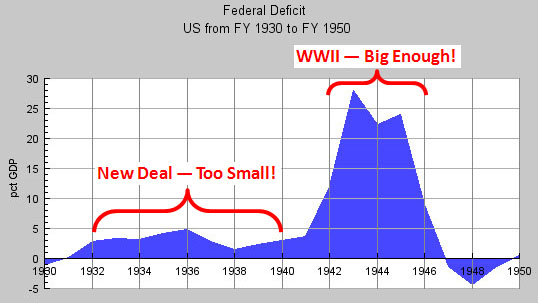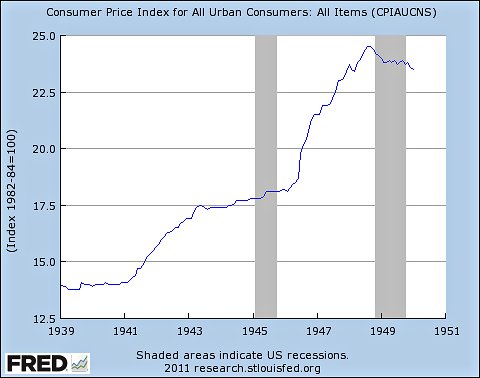I thought I would like to get this thread going again as long as we can leave personal attacks out of the mix........
How the Fiscal Cliff May Affect Your Taxes
By Kay Bell | Bankrate.com
In a few weeks, tax laws U.S. taxpayers have enjoyed for more than a decade are scheduled to expire. Along with long-standing and historically low tax rates, several popular tax credits and deductions already have or will soon expire.
That scenario is being described as a fiscal cliff. And if American taxpayers are nudged over that cliff by Congressional inaction, most of them will face dramatically higher tax bills.
Estimates by tax policy groups and government accountants put the total tax cost at more than $500 billion in 2013.
That averages out to almost $3,500 per household, according to calculations by the Tax Policy Center. Middle-class taxpayers are likely to see an average increase of almost $2,000.
Using Tax Policy Center data and hypothetical taxpayers, Bankrate shows what some tax bills might look like if lawmakers don't soon put up a guardrail at the fiscal cliff's edge.
The single tax filer
Joe is single and has an adjusted gross income of $60,000 a year. As is the case among two-thirds of the tax-paying population, Joe claims the standard deduction.
After subtracting the projected 2013 personal exemption of $3,850 and standard deduction of $6,050 for a single taxpayer, Joe's taxable income comes to $50,100.
If the current tax laws are extended beyond 2012, that would mean $8,900 of Joe's income would be taxed at only 10 percent, and his top tax rate would be 25 percent. This would leave him with a tax liability of $8,465.
If the current rates expire, however, Joe's tax bill would be $863.50 higher.
The reason? There would no longer be a 10 percent rate, making more of Joe's earnings taxed at 15 percent, and his top tax rate would be 28 percent instead of 25 percent.
Married couple filing jointly
Jane and Bill have two kids: 10-year-old Jimmy and 8-year-old Sarah. Both parents work, bringing home a combined adjusted gross income of $175,000. They don't yet own a home, so without mortgage interest to deduct, they're still claiming the standard deduction.
If the current tax laws stay in place, their four personal exemptions totaling $15,400 plus the $12,100 standard deduction will get them to $147,500 in taxable income, resulting in a tax liability of $28,803.
But Jane and Bill wouldn't have to send the Internal Revenue Service that much. Thanks to the $1,000 per-child tax credit, their final tax bill would be $26,803.
If the tax laws expire, however, Jane and Bill's tax bill will go up by $6,304 to $33,107. That takes into account that the child tax credit would return to its pre-tax-cut level of just $500 per kid.
One reason for the increased tax bill is the return of the marriage tax penalty. This is where a couple pays more taxes by filing one joint return than they would if they filed two returns as single taxpayers. Wider tax brackets and a larger standard deduction for married couples now help ease the penalty.
Instead of facing a top tax rate of 28 percent, Jane and Bill would be in the 31 percent tax bracket if the tax cuts expire.
Single parent head of household
Kathryn is a divorced working mom of 7-year-old Jonah. She makes $75,000 a year via her salary and alimony payments.
By filing as head of household, Kathryn's standard deduction of $8,900 and personal exemptions totaling $7,700 for herself and her son get her to $58,400 in taxable income.
Taxes on that amount are currently collected at the 10 percent, 15 percent and 25 percent rates, giving Kathryn a tax bill of $9,125. She knocks $1,000 off that thanks to the child tax credit.
But if the tax cuts expire, Kathryn's tax liability will be $1,435 more -- $9,560 -- in 2013. The bigger bill comes from losing the expired 10 percent and 25 percent tax rates, putting more of her income into the 15 percent and 28 percent tax brackets.
And just like all parents, married or single, Kathryn will only get a $500 child tax credit for her son starting in 2013.
Expiration of capital gains rates
If any of our hypothetical 2013 taxpayers have investments in a taxable brokerage account, their tax bills next year will be higher.
Long-term capital gains and certain dividend payments are taxed at lower rates than the regular, ordinary income rates, which now top out at 35 percent. Most taxpayers pay capital gains taxes at the 15 percent rate. Taxpayers in the 10 percent and 15 percent brackets don't owe any taxes on their gains.
But if today 's lower rates expire, the capital gains rates will go to 20 percent for most investors and 10 percent for those in the 15 percent tax bracket.
And dividends will lose their favorable tax treatment entirely. These payments will return to being taxed as ordinary income, meaning that taxpayers making enough to put them into the highest income tax bracket in 2013 would pay taxes on dividends at the top 39.6 percent income tax rate.
In addition, a provision in the health care reform law, often referred to as Obamacare, will kick in next year. This new 3.8 percent surtax will apply to capital gains, dividend and interest income of more than $250,000 for married couples filing jointly or $200,000 for other taxpayers.
Payroll tax holiday over
Every person who collects a paycheck knows that taxes reduce take-home pay.
In addition to income taxes, both federal and where applicable state, payments toward Social Security and Medicare, known as FICA taxes, are collected via withholding.
So that workers would have more money to spend and give the economy a boost, Congress enacted a 2 percent cut in the Social Security taxes paid by workers. This so-called payroll tax holiday has been in effect since 2011 but is scheduled to expire Jan. 1, 2013.
That means every worker will pay more taxes in 2013. The increase could be substantial for high-income earners.
Individuals who make up to the Social Security wage base of $113,700 next year will pay $7,049.40 in taxes for the retirement system. That's $2,425 more than this year because the wage base was slightly smaller ($110,100), and workers paid just 4.2 percent of their income toward Social Security instead of the regular 6.2 percent level that returns in 2013.
Other expiring tax breaks
While the possibility of higher tax rates gets most of the attention as taxpayers near the fiscal cliff, many other provisions could cause higher taxes if they are allowed to end Jan. 1, 2013.
In addition to losing half of the current child tax credit, parents would get reduced savings from the child care tax credit.
Students looking for the $2,500 American opportunity education tax credit would find instead its predecessor the Hope credit, which maxes out at $1,800.
Lower paid workers could still claim the earned income tax credit, but eligibility requirements would be tougher and credit amounts lower.
The estate tax would apply to more property left at death, affecting estates worth more than $1 million instead of the current $5.12 million exclusion amount. The tax rate also would rise from the current 35 percent to 55 percent.
Higher-income taxpayers who itemize would again see their overall Schedule A claims reduced by 3 percent. A similar reduction also would apply to personal exemption amounts for wealthier filers.
And legislation to increase the alternative minimum tax income exclusion amount must be approved retroactively for 2012 as well as for 2013, or tens of millions more taxpayers will face higher tax bills because of this parallel tax.




